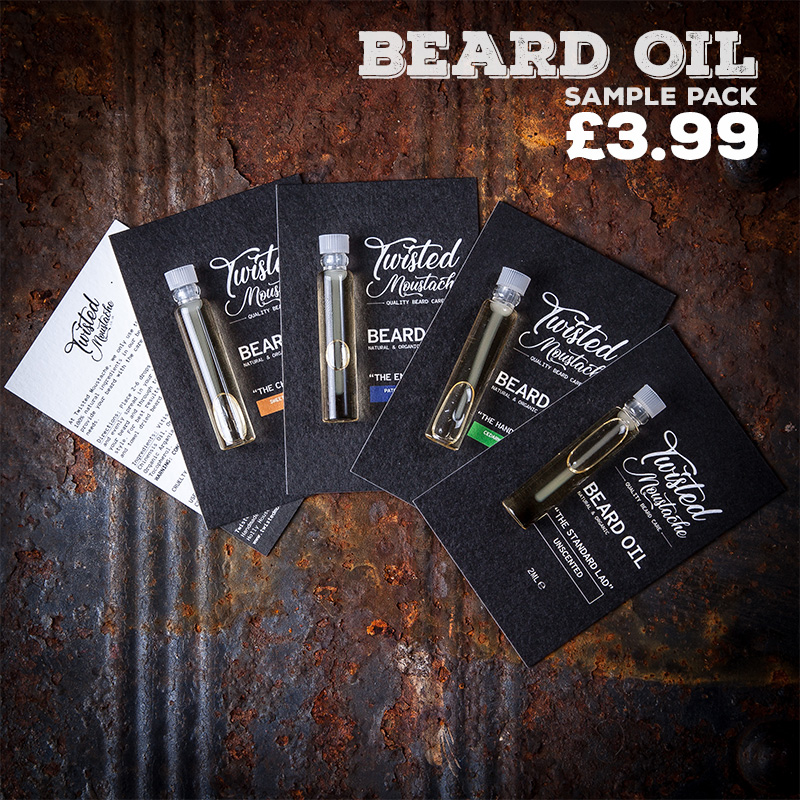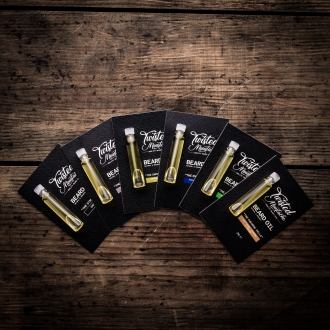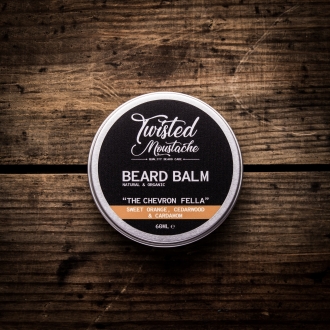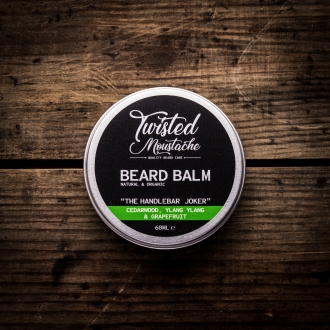Surprising Sources of Nutrients for Healthy Skin and Hair
By Jack Shaw (Guest Post) | Last updated 2nd October 2025
Many people invest heavily in products in the quest for healthy skin and hair. While these items can be beneficial, consuming the proper nutrients is essential, particularly if you aim to grow a beard, combat acne or address hair loss. In addition to fruits and vegetables, unexpected food sources offer essential nutrients to promote the health and appearance of your skin and hair.
Understanding Skin and Hair Health
The skin is the body’s protective covering from external harmful substances. For some reason, caring for the skin is often seen as feminine or vain for men. However, the truth is guys also experience the same skin issues as women, such as oiliness, acne and hyperpigmentation.
This rings true for your hair health, too. Hair care has become an integral part of a man’s daily routine. Nowadays, they value hair maintenance because they understand how it plays a role in reflecting one’s confidence and personal style. Hair care is especially vital when you’re an athlete, as facial hair can improve sports performance and provide protection from sunburn and windburn.
Taking care of these two health aspects requires more than splurging on high-end skincare and hair care products. While your favourite self-care items can help, optimising your nutrition and eating a varied, balanced diet can help protect your skin and hair from damage.
Surprising Nutrient Sources

Nourishing your body from the inside out is crucial. While most people are familiar with sources like fruits and vegetables, only a few realise these foods are great for your hair and skin health.
Vitamin E From Sunflower Seeds
Vitamin E is a fat-soluble nutrient that can help support a healthy scalp, prevent hair loss and improve shine. It acts as an antioxidant, helping protect skin from damage. This vitamin also creates a natural barrier to retain skin moisture. Aside from the hair and skin-boosting benefits, it can help boost the immune system, improving your body’s defences against infections.
It’s present in various foods, such as leafy greens and oils. One of the richest sources of vitamin E is sunflower seeds, which contain 7mg per 22g of seeds. You can eat them on their own, roasted or in powdered form. They also make delicious additions to your salads and oatmeal.
Omega-3 Fatty Acids From Chia Seeds
Chia seeds may be small, but they’re big on nutrients. They are packed with protein, fibre, antioxidants and omega-3 fatty acids that help improve skin, hair, and nail growth.
When ingested, they form a gel-like consistency in the stomach, contributing to the feeling of fullness. They’re versatile and can be used in many recipes. Some fun ways to eat chia seeds include adding them to your smoothies, oatmeal, overnight oats, salads and cereals. One of the easiest ways to consume them is to add them to water.
In addition to chia seeds, omega-3 fatty acids are commonly found in seafood such as salmon, mackerel and herring. This nutrient can help protect the skin against UV rays and reduce acne. It can also help with hair thickness and growth, which might be beneficial if you want to grow a beard or worry about hair loss.
Jack Shaw is a writer, editor and grooming enthusiast. His explorations of men’s health, fitness and fashion can all be found on Modded, a men’s lifestyle publication on which he serves as the senior writer. Reach out to him via LinkedIn.
Biotin From Eggs

Did you know one cooked egg has 10 micrograms of biotin? The yolk is an excellent source of this nutrient. Remember that they should be thoroughly cooked to reduce the risk of food poisoning and stimulate biotin absorption. You can enjoy them as is or mix them in your usual meals.
Biotin is often marketed as a hair, skin and nail product. This nutrient benefits people with conditions affecting hair growth, such as alopecia. For the skin, it helps reduce the risk of acne scarring and dermatitis.
Silica From Cucumbers
Silica is the second element after oxygen in abundance on the planet. It can be found in most rocks, clays, sands and in some foods, including cucumbers. Although cucumbers are 96% water — the highest water content of any food — they are packed with nutrients.
Aside from silica, cucumbers are rich sources of vitamin K, which is vital for blood clot prevention. If you take warfarin or any blood thinner, staying at the recommended daily vitamin K intake is crucial, as this vitamin can interfere with your medication.
There are many ways to enjoy cucumber. Snack on cucumber sticks with hummus, add to salads or blend it with mint and water to create a delicious drink.
Zinc From Oysters
Oysters provide various health benefits. In fact, a 100-gram serving of cooked wild eastern oysters offers 61mg of zinc, which is almost six times more than the recommended dietary allowance for adults. Zinc is crucial for cell growth, skin health and hair growth. Deficiency may lead to hair loss, but it’s worth noting that just because you suffer from it doesn’t mean you automatically have low zinc levels.
Aside from being packed with zinc, oysters are a rich source of protein. Though the health benefits are undeniable, some potential concerns exist. Eating raw oysters increases the risk of bacterial infection, leading to diarrhoea, fever and vomiting. Because of these potential health implications, people with compromised immune systems should avoid eating raw seafood.
It’s also worth noting that consuming too much zinc can harm your health. While zinc toxicity is often associated with supplements, very high intake can interfere with magnesium absorption and balance.
Iron From Legumes
When you think of iron in food, meat and seafood probably come to mind. However, a lesser-known source is loaded with this essential nutrient. Legumes, such as beans, chickpeas, peas, lentils and soybeans, are a great source of iron.
According to Melissa Piliang, MD, via Cleveland Clinic, it’s common for hair loss patients to have iron deficiency, especially women and people following a vegan or vegetarian diet. Iron also helps with collagen production, promoting plumper and more hydrated skin. Keeping your iron levels healthy can help you look your best every day.
Legumes are excellent sources of fibre, potassium and magnesium. Include beans and peas in salads and one-pot meals like curries and casseroles.
How to Incorporate These Nutrients Into Your Daily Diet

Knowing what to eat for healthy skin and hair is one thing. While you can indulge in fast food occasionally, ensuring you’re fuelling your body with the proper nutrients is essential. Here’s how you can easily incorporate healthy food sources into your diet.
- Make Simple Switches
Starting small and slow is one of the easiest ways to incorporate healthy foods into your routine. This allows you to eat as you normally would while making tiny changes. You can replace:
- Sour cream with Greek yoghurt
- Iceberg lettuce with spinach
- White rice with brown rice
- Milk chocolate with dark chocolate
- Try Meal Prep
Meal prepping is a great way to save time, money and food waste. It also allows you to pack your meals for the week all at once. More importantly, it ensures you incorporate all healthy foods into your meals. Here are some tips to help you get started:
- Prep a meal you can reheat easily: Soups and sauce-based dishes are ideal for meal prep, as they hold more moisture than fried foods.
- Invest in high-quality containers: A quality sealable container ensures you eat without worrying about a mess wherever you go. Airtight ones keep oxygen out, helping the food stay fresh for longer. Choose items that are microwave- and dishwasher-safe.
- Focus on one base recipe: Choose a single recipe that can be served with various sides. Rice, salads and pasta recipes are great examples. Add legumes, eggs and seeds on the side.
- Live a Healthy Lifestyle
Many lifestyle choices exist to help keep your skin and hair healthy. One of the best ways is to get exercise to combat the negative effects of stress and increase blood flow to your skin.
Always wear broad-spectrum sunscreen with a high SPF daily. Experts say it reduces cancer risks by 40% when applied properly. Avoid unhealthy habits such as smoking and vaping, which increase the risk of hair loss by damaging hair follicles and boosting the body’s oxidative stress.
- Snack on Healthy Foods
Snacks can be part of a healthy eating regimen, but only if done correctly. Instead of reaching for that bag of chips, stock your pantry and fridge with nutritious options. Some examples include sunflower seeds, hard-boiled eggs, overnight oats with chia seeds, yoghurt, unsalted nuts and frozen fruits.
Nourish Your Skin and Hair From the Inside Out
You don’t have to wait until you experience problems to eat right. Incorporate these food sources into your diet to kickstart your journey to healthy skin and hair.






